At his best a brilliant leader, now Boris Johnson leaves his nation in a mess
The bitterness and hatreds within the British Conservative party are epic. The toughest decisions of all now await Boris Johnson’s successor.
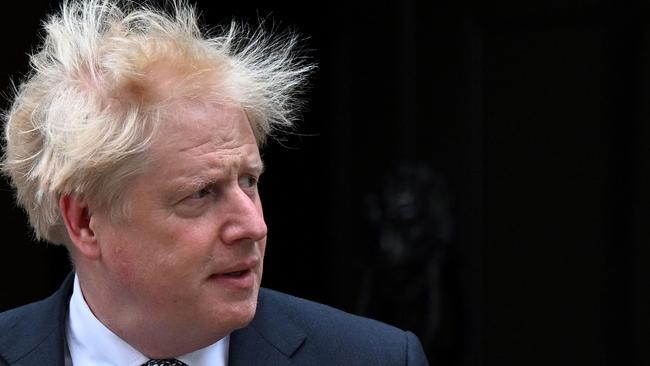
– Boris Johnson, on the pre-prime ministerial Winston Churchill, in The Churchill Factor
Boris Johnson resigned the leadership of the Conservative Party in ignominy, in three years having comprehensively lost the trust and support of his colleagues. His resignation statement in front of 10 Downing Street was short and barbed. Yet for a time, Johnson looked like a combination of Margaret Thatcher and Ronald Reagan. Her steel in pursuing a tough cause, in his case Brexit, against the straining sinews of every element of the British establishment, while somehow retaining Reagan’s indefatigable good humour and infectious optimism. And with just the faintest echo of Winston Churchill’s speeches.
Instead Johnson ended up resembling Bill Clinton on a bad day – his acquaintance with the truth slight, episodic and unreliable, his faith in his own righteousness boundless, an inability to change his own dysfunctional personal style, a British “slick Willie” leaving everyone who put their faith in him strangely diminished, his enemies equally left with the hollowest of vindications.
Although Johnson failed to manage his government or to offer his nation sustained coherence in crisis, he nonetheless stands as one of the historically significant prime ministers, more important you would think, than any British leader since at least Tony Blair, perhaps since Thatcher. Johnson’s contradictions are endless.
Sadly he leaves his nation in a mess. Inflation will soon hit 11 per cent. Britain has among the highest inflation and lowest economic growth of any nation in the G7.
There is a crisis brewing within Northern Ireland, which hasn’t had a functioning provincial government since February, and between Britain and the EU over Northern Ireland. The EU is insisting on Britain implementing an absurd trade barrier between Northern Ireland and the rest of the UK. This is unnecessary, irresponsible, reckless and dangerous behaviour by the EU – but hey, that’s the EU for you.
Britain needs strength and agility to handle this dispute. That’s just what Johnson offered at his best. Can any of his possible successors muster those qualities? Meanwhile, western Europe faces a ferocious security challenge from Vladimir Putin’s Russia. Britain needs renewed investment in its defence forces and it needs the continued moral clarity Johnson brought to solidarity with Ukraine. Any Conservative leader worth their salt should be able to manage that much.
Johnson wants to stay on as prime minister until the Conservative party runs its exhaustive internal leadership election process.
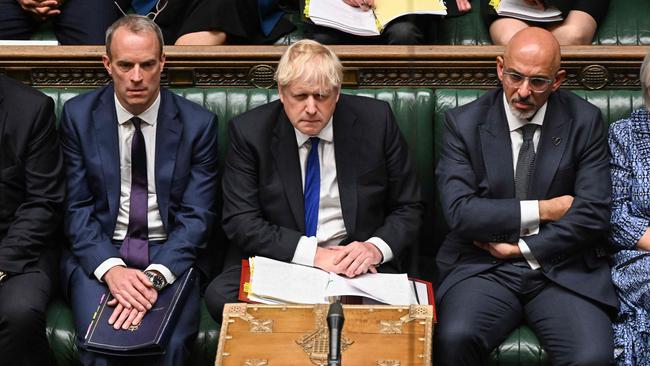
Leadership contenders will need the support of eight MPs to enter the initial ballot. There would then be a series of votes among MPs until the field is whittled down to two. Those two would then campaign among the 180,000 Conservative rank-and-file members, who would then vote by postal ballot. It may be that this could be short-circuited. If the winner from the MPs’ votes is miles ahead of the second-placed candidate, and the result among the Conservative rank and file pretty much a foregone conclusion, the challenger could withdraw.
This is how Theresa May succeeded David Cameron, who also saw himself staying on as caretaker Prime Minister while a lengthy leadership contest was held to determine his successor. Instead all her rivals stood aside for May.
The most popular Conservative cabinet minister among rank-and-file party members appears to be Defence Secretary Ben Wallace, a plain-spoken everyman. Rishi Sunak, who resigned as chancellor, and Sajid Javid, who resigned as health secretary, are likely high-profile candidates. It says something good about modern Britain that one leading contender for Conservative leadership is Hindu and one Muslim, and that this is entirely incidental. Foreign Secretary Liz Truss, Trade Secretary Penny Mordaunt and Attorney-General Suella Braverman are all right-wing women with substantial support. Nadhim Zahawi, born in Iraq to a Kurdish family, who did well in several portfolios but then accepted a promotion from Johnson only to resign two days later, is also a chance.
If you haven’t heard of most of these people you’re in pretty much the same boat as many Brits.
None of these contenders has anything like Johnson’s pre-prime minister profile, presence, wit or political talent. But sometimes politics itself wants a change after a high-octane showman. Franklin Roosevelt was succeeded by plain Harry Truman, political thespian Gough Whitlam by a dour Malcolm Fraser, the sharp-tongued Paul Keating by the reliable, courteous and decent John Howard.
In every case, the dour successor, underestimated because of their plainness, went on to win at least one election. Indeed Thatcher – “too good for the whole damn lot of them”, as one newspaper memorably claimed when she was dethroned – was succeeded by the gentle, avuncular John Major, almost the Jim Hacker from Yes Prime Minister of this time, who remarkably won an unexpected fourth term for the Conservatives.
Of all of the contenders to succeed Johnson, I think Wallace looks the best, and if not him, one of the right-wing women.
Conservatives should not let the good things that Johnson did be obscured by the chaos of his style and the mess he made of the last year in particular of his government. For the good things he did had the potential, still have the potential, to be of enormous benefit to Britain.
First, perhaps, Johnson established that Conservatives could be interesting. Johnson’s verbal wit was extravagant and fantastic, and could have come only from a man devoted, as Johnson is, to the books of that supreme comic genius, PG Wodehouse.
Johnson was always an electric ball of verbal energy and high jinks. In defending the AUKUS security agreement between the US, Britain and Australia, Johnson memorably told the Conservative conference that lately there had been “a lot of raucous squaukus from the anti-AUKUS caucus”.
In a fantastic (meaning both remarkably good and also weirdly unbelievable) speech in Sydney a few years ago, Johnson riffed off the Down Under lyrics from Men at Work.
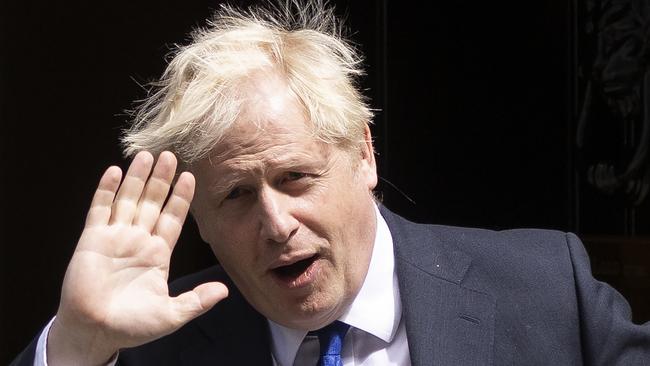
Confronting a man who was “six foot four, and full of muscles” Johnson discovered, when the man handed him a vegemite sandwich, that he was “from the land Down Under”. This was impossibly complicated and clever on Johnson’s part, a genuine and audience-winning tribute to the Australian character, which Johnson loved.
Flashes of this characteristic wit were evident in the dignified but not altogether unthreatening speech he made outside 10 Downing Street announcing his resignation. For the Conservative party to want to change leaders when it had such a big majority, was delivering so much and was still competitive in the polls, was “eccentric”, he said. Britain’s “brilliant and Darwinian” system would produce another good leader soon enough. He was tremendously sad not to be able to continue to deliver the things he’d been elected on, to lose “the best job in the world”, but “them’s the breaks”.
And a marvellous touch of barely disguised malice – he would give his successor “all the support I can”.
It’s worth recalling Johnson’s more substantial achievements, which always went side-by-side with his chaotic personal life. He was once sacked as a journalist for making up a quote, yet he became editor of the Spectator. He was sacked from the Conservative frontbench for lying about an affair. He was a constant womaniser and fathered an unknown number of illegitimate children.
But he was also twice elected mayor of London, a remarkable achievement for a Conservative. He was Eton and Oxford educated and a classicist; his Wodehouse and Churchill language, mixed with his relentless good humour and boosterism, jelled perfectly in the mayor’s office.
The position of mayor was kind of part time. He kept up his journalism, saw himself as the city’s chief booster, and supported public transport.
But it was at the 2016 Brexit referendum that Johnson had his most fateful date with history.
I covered that referendum closely and spent a bit of time in Britain during the campaign. Every major political party, almost the entirety of the media, plus every academic institution, most non-government organisations, and a parade of foreign leaders from Barack Obama to our own Tony Abbott, supported Remain, the campaign for which was led by the incumbent prime minister, David Cameron.
Johnson led the Vote Leave effort and was by a vast distance its most prominent campaigner. People claim there was dishonesty, or at least exaggeration, in the Leave campaign. But Project Remain truly was the fear campaign. The British Treasury was disgracefully press-ganged into claiming the nation would plunge into immediate recession if Leave won.
But against all odds, expectations and the predictions of the polls, Leave did win. The British people reclaimed their sovereignty. From that moment, the British establishment saw Johnson as their mortal enemy. In the next election, in 2017, both the Conservatives and Labour claimed they would honour Brexit, but Theresa May was reduced to minority government and Labour, the Scottish Nationalists, the Liberal Democrats and the unreconciled Remainers among the Tories combined to ensure there was no parliamentary majority for a real Brexit, or even technically enacting the referendum result.
Johnson broke that logjam by taking the Conservative Party leadership and prime ministership from May. Almost immediately he went to an election promising to implement a real Brexit, a hard Brexit if you like. At a time when British politics was fragmenting, like politics all over the West, Johnson won a landslide victory, a majority of 80 seats, the biggest Conservative majority since 1987. The Conservatives’ vote share was 43.6 per cent, the highest for any party since Thatcher’s Conservative victory in 1979.
This election sealed Brexit and freed Britain to take control of its own sovereignty. Neither the Brexit referendum nor the 2019 election were imaginable without Johnson. The 2019 election served another historic purpose. It defeated and vanquished Jeremy Corbyn, the most extreme and left-wing leader in Labour’s history. Corbyn was an enemy of national security and a friend of the most perverse regimes and movements in the world, and his reign at Labour was distinguished by a tolerance of anti-Semitism and the rule of barely reconstructed communist officials and advisers. Yet when May was reduced to minority government, Corbyn very nearly became prime minister, a fate for Britain which would have been shameful and disastrous in equal measure.
As prime minister, Johnson did several important and good things. One was that he used Britain’s freedom from European bureaucracy and constipated decision-making to acquire vaccines for Covid more quickly than any other nation in Europe. He backed Ukraine and opposed Moscow more strongly than any of the other big, rich nations in Europe. And he was the British father of AUKUS, under which Australia is to acquire nuclear-propelled submarines.
These are positives, and they are big positives. Yet in many ways it all started to go wrong for Johnson after the 2019 election, Having won Brexit and the election, he had no idea what those victories were for. His one big, non-Brexit idea was “levelling up”, which meant making the poorer northern parts of England, which had voted for him because they were pro-Brexit and hated Corbyn’s anti-British leftism, more wealthy. The problem was Johnson had absolutely no coherent idea of how to do this. He appointed a weak cabinet, exiling or defenestrating any substantial figures, and he gave the cabinet no direction, or rather constantly changing contradictory directions.
As a newspaper columnist, Johnson often tried on ideas and intellectual fashions. He had deep literary tastes and historical prejudices but no coherent political philosophy. He could never decide whether he was a Thatcherite, low tax, deregulatory free marketeer, or a one-nation, big-spending, tax and welfare paternalistic Tory.
He had often been spectacularly politically incorrect but then adopted a range of the silliest identity politics poses, recently saying Putin’s problem was toxic masculinity and if only he’d been a woman none of this war with Ukraine would have come about.
Having been a deep sceptic about excessive climate change action, Johnson immediately renewed Britain’s commitment to net-zero emissions in the shortest possible time frame. The policies Johnson pursued to this end resulted, as they do in all countries that try them, in massive energy price rises. He got caught up in a series of scandals that involved not obeying rules he imposed on others, and then telling lies about the transgressions. The lies were much more important than the initial breaches of policy.
His administration was always chaotic. He never mastered detail himself and people who had at times been his closest collaborators, such as Dominic Cummings and episodically Michael Gove, became his most trenchant critics.
In many ways, Covid destroyed Jonson’s premiership as it has devastated centre-right parties around the world. All over the West, Covid has meant bigger government, massive government spending, spiralling deficits, increased state power and at least temporary suspension of some civil liberties. Centre-left parties can handle these positions with far less psychic stress than centre-right parties can. Johnson sometimes spoke like a libertarian, and libertarians were part of his base. But he imposed draconian lockdowns to counter Covid, and quasi-socialist economic controls in pursuit of net zero.
Johnson’s personal failings were all his own. But his political contradictions in some measure reflect the contradictions of the Conservative party at large, contradictions experienced by most centre-right parties. Will his colleagues elect a “teal” Conservative, so to speak, seeking revival in London and the lush leafy environs of the Home Counties? Or will they elect a “van man” leader, someone who might keep the red wall seats of the north? And what will they do about taxes – high deficit or high taxes? Or perhaps both?
The Scottish Nationalist Party, which rules Scotland, plans its own independence referendum next year. Sinn Fein, which won the Northern Irish election, wants to leave the UK and join the Republic of Ireland. The bitterness and hatreds within the Conservative party are epic.
Johnson sought to transcend all these contradictions with clever word play and a winning personality, all useful attributes to be sure but no substitute for making tough decisions.
The toughest decisions of all now await his successor.


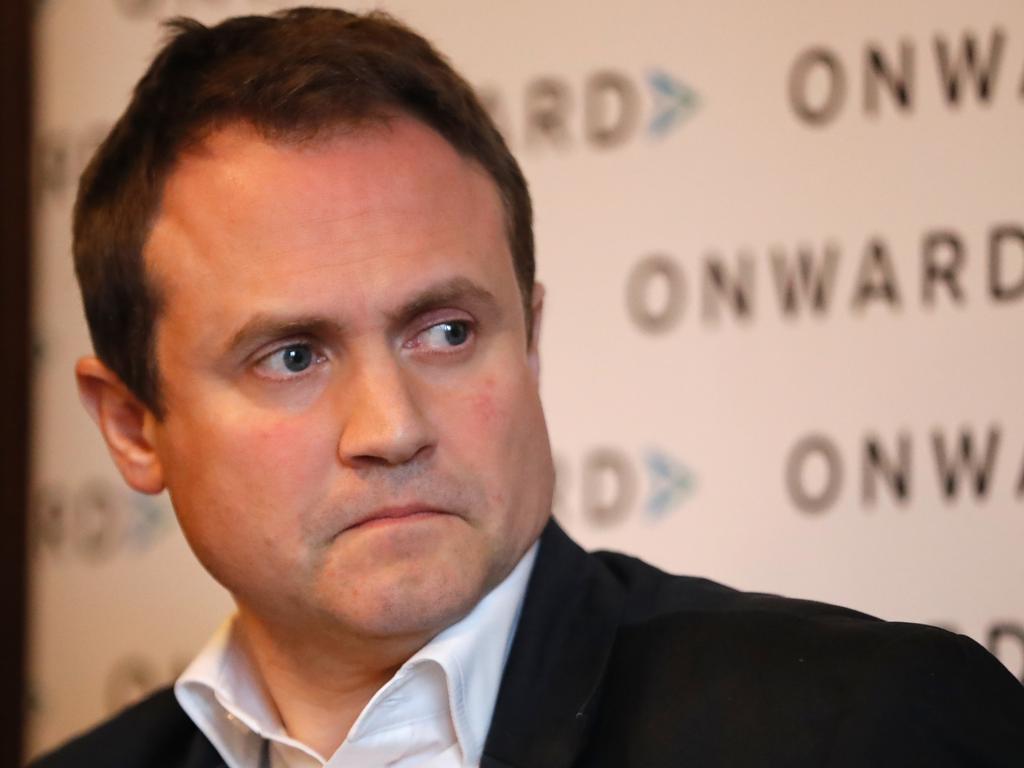

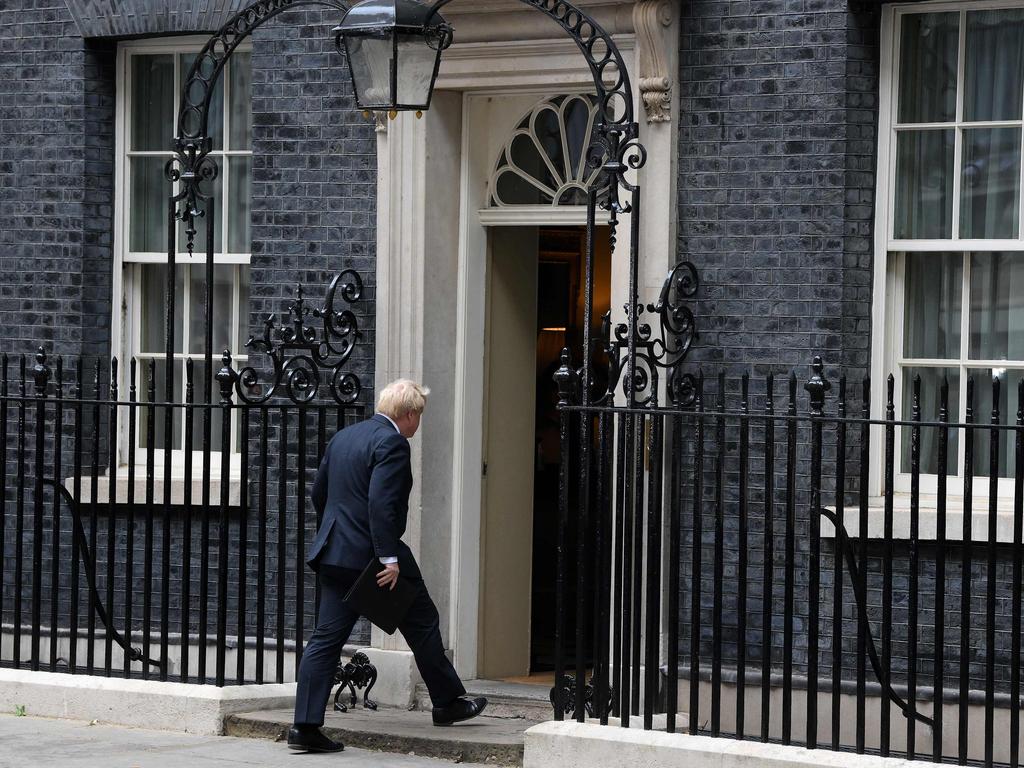


He might be thought of as a man whose love of lush language exceeded his good sense, who lacked that vital note of sincerity – and therefore who lacked the final power to persuade.